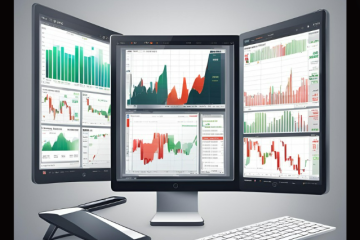In recent years, funded trader programs have emerged as a transformative force in the trading industry, offering new opportunities and reshaping the traditional landscape. These programs, which provide traders with capital to trade and share in the profits, have gained significant popularity. This article explores how funded trader programs are changing the trading landscape, highlighting their impact on traders, firms, and the industry as a whole.
Understanding Funded Trader Programs
Funded trader programs are designed to support traders by providing them with capital to trade financial markets. Unlike traditional trading models where traders use their own funds, these programs allow traders to access substantial capital provided by the program sponsor. In return, traders typically share a portion of their profits with the firm. This arrangement offers a unique opportunity for traders to engage in high-value trading without risking their personal capital.
One of the most significant advantages of funded trader programs is the reduction in financial risk for traders. By utilizing the firm’s capital, traders can execute larger trades and employ more sophisticated strategies that might otherwise be out of reach. This access to capital not only amplifies the potential for returns but also allows traders to explore diverse trading opportunities across various markets.
The Appeal of Funded Trader Programs
The rise of funded trader programs can be attributed to several key factors that appeal to both new and experienced traders. Firstly, these programs provide an entry point for traders who may lack sufficient personal capital. For many, the initial financial barrier to trading can be a significant obstacle. Funded trader programs lower this barrier by offering capital to trade, thereby democratizing access to trading opportunities.
Secondly, the profit-sharing model inherent in these programs aligns the interests of traders and firms. Traders receive a share of the profits they generate, which serves as a strong incentive for performance. This model can be more rewarding than traditional commission-based structures, where earnings are tied to the volume of trades rather than their profitability. As a result, traders are motivated to maximize their trading efficiency and success.
Additionally, funded trader programs often come with support and resources that enhance traders’ capabilities. Many programs offer training, mentorship, and access to advanced trading platforms and tools. This support helps traders develop their skills, stay updated on market trends, and improve their overall performance. By providing a structured environment for growth and development, these programs contribute to the long-term success of traders.
Impact on the Trading Industry
Funded trader programs are not only benefiting individual traders but are also having a broader impact on the trading industry. The proliferation of these programs has led to increased competition among trading firms, driving innovation and improvements in trading technology and strategies. Firms are continually seeking ways to attract and retain talented traders, which has led to advancements in trading platforms, analytics, and risk management tools.
The increased accessibility of trading capital has also contributed to greater market liquidity. With more traders participating in the markets, there is a higher volume of trades and more diverse trading strategies being employed. This increased activity can lead to more efficient markets and better pricing for all participants.
Moreover, the rise of funded trader programs has contributed to a shift in the traditional trading career path. Traders now have more options for advancing their careers, including opportunities to work with multiple firms or start their own trading ventures. This flexibility allows traders to tailor their career paths to their preferences and strengths, fostering a more dynamic and diverse trading ecosystem.
Challenges and Considerations
While funded trader programs offer numerous benefits, they also come with certain challenges and considerations. One potential challenge is the performance pressure associated with managing the firm’s capital. Traders are often required to meet specific performance targets and adhere to the firm’s trading strategies. This pressure can be intense, particularly in a competitive environment where consistent performance is crucial for success.
Additionally, the terms of profit-sharing agreements can vary between programs. Traders need news to carefully review these terms to ensure they understand how profits will be split and what percentage they can expect to receive. Some programs may offer more favorable terms, while others might retain a larger share of the profits. Traders should assess these terms in relation to their financial goals and expectations.
Another consideration is the reputation and reliability of the funded trader program. Not all programs operate with the same level of integrity and transparency. Traders should conduct thorough research to ensure they are partnering with reputable firms that adhere to industry standards and provide a fair and supportive trading environment.
The Future of Funded Trader Programs
Looking ahead, funded trader programs are likely to continue evolving and expanding. The integration of new technologies, such as artificial intelligence and machine learning, is expected to enhance the trading capabilities of these programs. These technologies can provide more sophisticated trading tools, better risk management, and improved performance analytics.
Additionally, the competitive nature of the funded trader industry will drive further innovation in business models and services. Firms may offer more specialized programs, tailored support, and diverse trading opportunities to attract top talent. This focus on innovation and customization will likely contribute to the continued growth and success of funded trader programs.
Conclusion
Funded trader programs are reshaping the trading landscape by providing traders with access to capital, aligning interests through profit-sharing models, and offering valuable support and resources. These programs are democratizing access to trading opportunities, driving industry innovation, and fostering a more dynamic trading environment. As the industry continues to evolve, staying informed about the latest developments and opportunities in funded trader programs will be key to leveraging their benefits and achieving success in the trading world.



